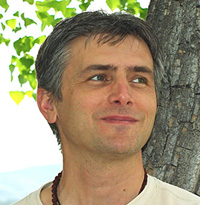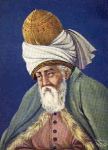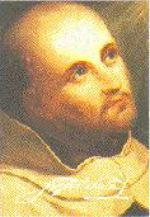
I am often asked how I came to the world of sacred poetry. What set me on this path? Was there a particular poet who opened the doorway or a line that hooked me? What was my inspiration for starting the Poetry Chaikhana?
My father, Steven Granger, was a poet, so I heard poetry from a young age. Like many young people, I wrote a bit of poetry as I grew up, but I didn't take it too seriously. Most of the poetry I was exposed to was, well, boring to me. I thought of poetry as belonging my father's world. To me it was mostly an intellectual game of words.
In the year 2000, I moved with my wife Michele to Maui. A friend from the mainland sent me a series of talks by the poet David Whyte on cassette tapes. I went for long drives along Maui's country roads, through the tall sugar cane fields, among the rows of spiky pineapple plants, listening to David Whyte's molasses accent, as he told stories and recited poetry by poets I hadn't heard of before: Antonio Machado, Anna Akhmatova.
Maui's natural beauty and quiet rhythms of land and sea and sky inspired me to go deeper into my spiritual practices. I was meditating deeply, praying, fasting, going for long walks in the eucalyptus forests that grew along the slopes of Haleakala Volcano. It was idyllic, yet I was going through a personal crisis.

alierturk /
I had just broken with a spiritual group I had been practicing with for nearly ten years. So, while I was engaged in intensive spiritual practice, it had lost its context. Should I still be following the same form of prayer, the same focus in meditation? I was flailing about.
Christmas came, and the sense of crisis deepened. The holidays just seemed to emphasize my disorientation. I was in my early 30s by that point and had no career to speak of. I was just doing work to get by. I was largely cut off from friends and family, cut off even from the American mainland. My one driving goal was spiritual growth. That was my only identity. And it was in disarray.
I came to a profound personal confrontation. For the first time I really saw myself. And that was a terrifying thing. I dropped all pretense and projection, all the fantasies of who I thought I was or who I might become. I just looked at myself plainly, as I was. What I saw wasn't terribly impressive. I felt I was a mostly good-hearted person, but largely ineffectual. I had the ironic recognition that I was basically a likable flake. What truly surprised me, though, was the thought that followed, which was that it was okay.
New Years came and went, while I hovered in that limbo state.
The combination began to ferment in my mind the poetry and the personal crisis.
In early January it all converged and then POW! I was catapaulted into an ecstatic stillness. Everything about me and my world came to a complete stop. The person I thought of as "Ivan" seemed to disappear. It was as if some undefined, wide-open awareness was quietly witnessing the world through my eyes. My heart bloomed and was flooded with love. An indescribable joy bubbled up inside me. The entire world was an intangible outline sketched upon a golden-white radiance, and I was a gossamer thin ghost happily disappearing in that light.
I spent days hardly speaking, a crooked grin plastered across my face.
I didn't want to unsettle my wife, so I made a game of it. I pretended to be "Ivan." I resumed my work schedule. I walked the dogs. I cleaned the house. But the world still shone.
I started to fill pages in my journal, describing what I was witnessing. How the world was changed, how I was changed. But I found that what really wanted to come out was poetry!
As I wrote more poetry, I found a certain metaphoric language naturally emerging in what I was writing: water and honey and wine, sleep and death and new life, moon and sun and light




